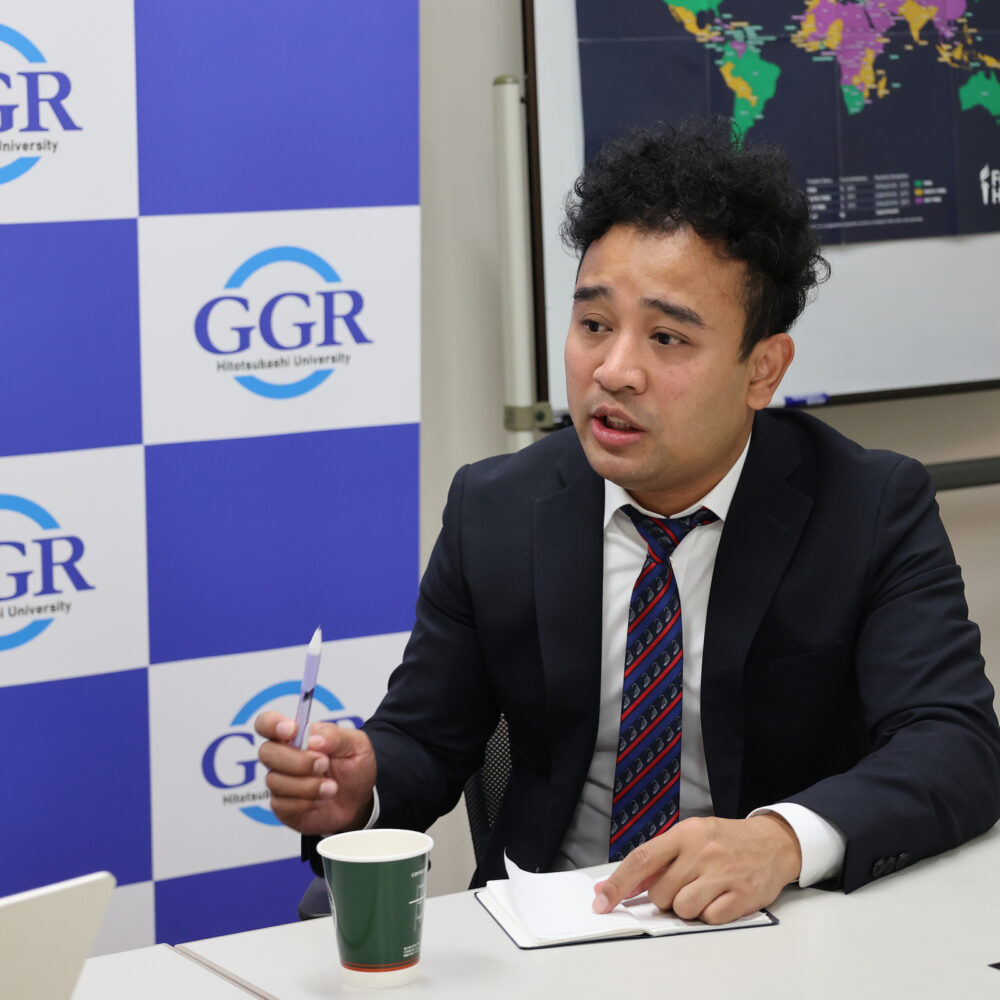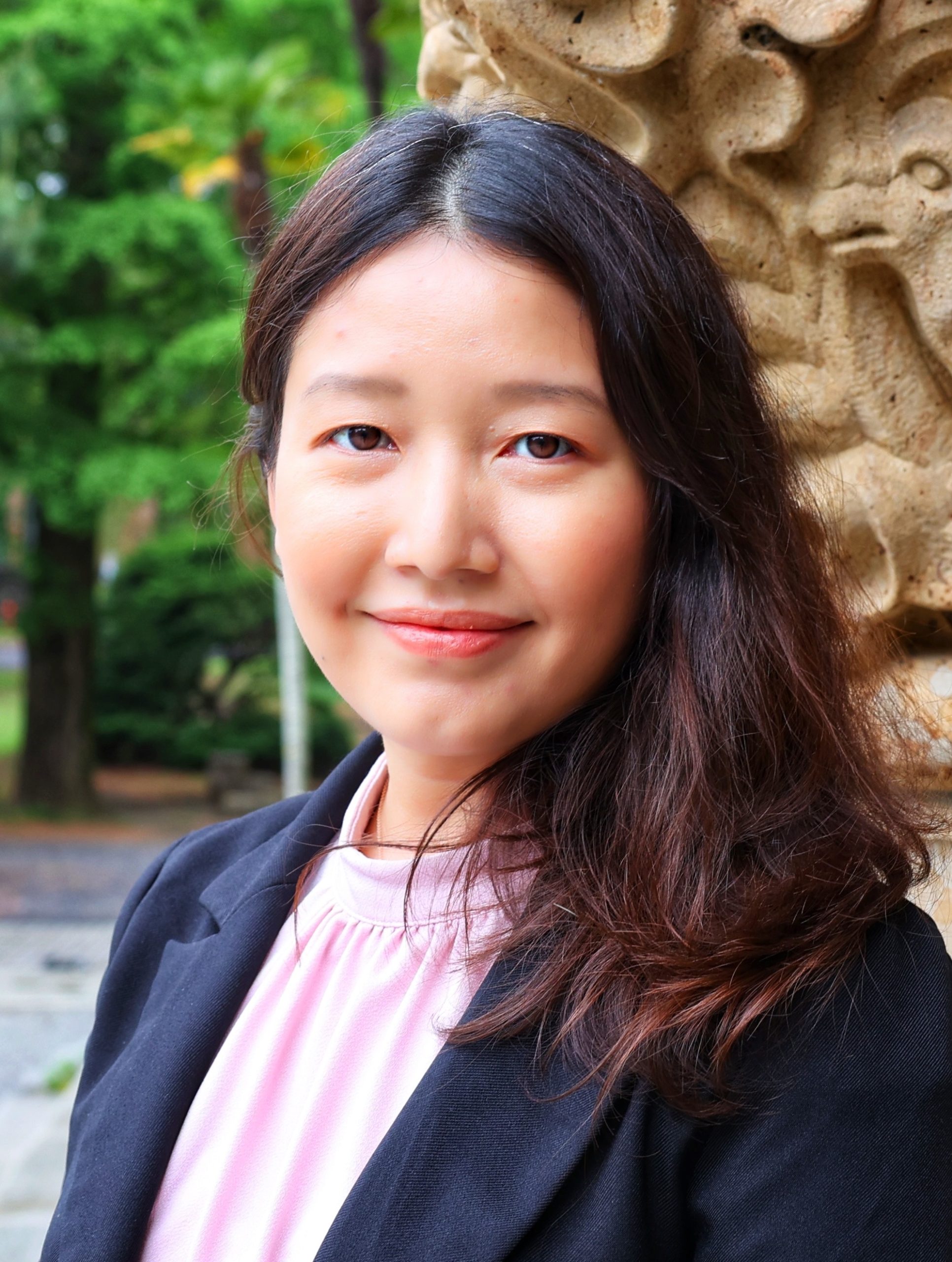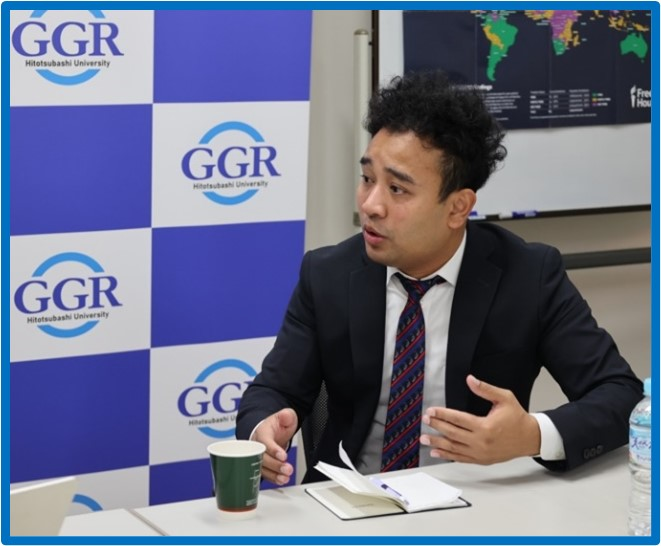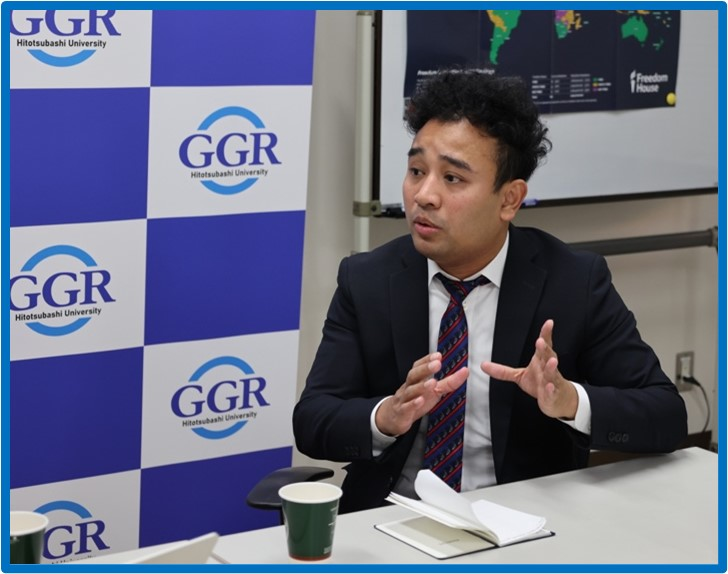

Reflections of a Myanmar Activist: Navigating Struggles and Fostering Resilience in Japan for the Homeland
Interviewer and writer: Hnin Htet Htet Aung
(Master’s student, School of International and Public Policy, Hitotsubashi University)
April 12, 2024
*The paper was written based on an interview conducted on March 1, 2024.
 The Institute for Global Governance Research (GGR) undertook an interview with Myo Min Swe, seeking to unravel the dynamic experiences of the Myanmar diaspora in Japan. This exploration unfolds within the context of Myanmar’s ongoing struggle with military rule, a situation imposed ruthlessly against the collective will of the Myanmar people, and the support and activity of Myanmar activists residing in Japan.
The Institute for Global Governance Research (GGR) undertook an interview with Myo Min Swe, seeking to unravel the dynamic experiences of the Myanmar diaspora in Japan. This exploration unfolds within the context of Myanmar’s ongoing struggle with military rule, a situation imposed ruthlessly against the collective will of the Myanmar people, and the support and activity of Myanmar activists residing in Japan.
Myo Min Swe, a member of the Milk Tea Alliance Japan, actively addresses the challenges and opportunities encountered by Myanmar activists currently residing in Japan. Originating from the Yangon region and affiliated with the Bama ethnic group, Myo illuminates the distinctive experiences of the Myanmar community in Japan. He draws from his 18 years of firsthand experience as a member of the Myanmar diaspora living in Japan to offer profound insights.
 When Myo arrived in Japan in 2005, he had no previous involvement in political matters. With an interest in the field of network engineering and the goal of securing a full-time job in Japan, he enrolled in a college, majoring in network engineering. “I seriously intended to obtain a salaried job after finishing the college. Unfortunately, I had to quit the college since I immersed myself in activities and movements in Japan to support the 2007 Saffron Revolution in Myanmar which involved political and economic protests. During that period, we, the Myanmar diaspora in Japan, rallied in front of the United Nations University and the Myanmar Embassy in Japan for the release of all political prisoners, the abolition of the 2008 constitution which was adopted by the military junta and reserved 25% of parliamentary seats for serving military officers, and an end to the civil war, among other causes.” He explained his circumstances during that period, offering insights that serve as a reflection of the prevailing political landscape in Myanmar and the experiences of the young Myanmar diaspora in Japan. He also emphasized that the year 2007 “stands out as a turning point in my life, propelling me from being an ordinary youth to an activist. This transformation was fueled by my deep-seated aspiration for the promotion of democracy and human rights in my homeland.” Myo’s articulate expression makes clear his resolute motivation, alongside a poignant acknowledgment of the heartache stemming from his unfulfilled college aspirations.
When Myo arrived in Japan in 2005, he had no previous involvement in political matters. With an interest in the field of network engineering and the goal of securing a full-time job in Japan, he enrolled in a college, majoring in network engineering. “I seriously intended to obtain a salaried job after finishing the college. Unfortunately, I had to quit the college since I immersed myself in activities and movements in Japan to support the 2007 Saffron Revolution in Myanmar which involved political and economic protests. During that period, we, the Myanmar diaspora in Japan, rallied in front of the United Nations University and the Myanmar Embassy in Japan for the release of all political prisoners, the abolition of the 2008 constitution which was adopted by the military junta and reserved 25% of parliamentary seats for serving military officers, and an end to the civil war, among other causes.” He explained his circumstances during that period, offering insights that serve as a reflection of the prevailing political landscape in Myanmar and the experiences of the young Myanmar diaspora in Japan. He also emphasized that the year 2007 “stands out as a turning point in my life, propelling me from being an ordinary youth to an activist. This transformation was fueled by my deep-seated aspiration for the promotion of democracy and human rights in my homeland.” Myo’s articulate expression makes clear his resolute motivation, alongside a poignant acknowledgment of the heartache stemming from his unfulfilled college aspirations.
“Although I couldn’t complete my college education, I did not fail in supporting student activists in Myanmar concerning their activities and education. I recognize the paramount importance of education for society, and these student activists represent our future leaders who can foster a better Myanmar by championing human rights and democracy. Thus, along with other Myanmar diaspora in Japan, I founded the group ‘We for All’ to raise funds not only for student activists but also for orphanages, centers for HIV/AIDS patients, and other similar causes,” he elucidated, shedding light on the remarkable resilience and strong-mindedness of the youth living away from their homeland. This endeavor reflects a profound consideration for other youths engaged in the struggle for democracy and human rights in Myanmar.
In retrospect, Myo dramatically remembers playing a crucial role in coordinating an election monitoring trip to Myanmar in 2015. During this historic venture, he facilitated the participation of Japanese lawmakers to observe the transformative moment in Myanmar’s trajectory. The National League for Democracy (NLD), led by Aung San Suu Kyi, achieved a sweeping victory, marking the end of a 50-year military rule. “After five years under the NLD government, we observed positive changes in Myanmar, notably in diplomatic and economic ties with ASEAN countries, especially Japan. Motivated by these improvements, my wife and I made the decision to return, aspiring to contribute our knowledge and experience gained in Japan for the betterment of our homeland. Unfortunately, the 2021 military coup has disrupted our dreams and dashed our hopes for a brighter future in our country,” he lamented.
In concluding, Myo underscored, “I strongly urge the Japanese government to heed the voice of the Burmese people and extend humanitarian assistance. It’s vital to establish connections with the NUG government, actively participate in the political scene, and halt ODA funding to the military. The implementation of targeted economic sanctions and the provision of humanitarian aid are imperative.” Continuing, he conveyed, “My message to the people of Japan is a sincere expression of gratitude for their steadfast support to Myanmar’s pro-democracy movement since the coup. I deeply appreciate their diverse forms of involvement, such as participating in signing petitions and supporting Myanmar in various ways.”
| I strongly urge the Japanese government to heed the voice of the Burmese people and extend humanitarian assistance. It’s vital to establish connections with the NUG government, actively participate in the political scene, and halt ODA funding to the military. The implementation of targeted economic sanctions and the provision of humanitarian aid are imperative. |
 “Moreover,” he urged, “I call upon the Japanese people to encourage their government to collaborate with democratic forces and aid the people of Myanmar in addressing the Myanmar issue.” Through an examination of these demands, it becomes clear how fervently Myanmar diaspora and activists, representing a diverse range of ethnic groups, actively work towards promoting democracy and human rights in the context of Myanmar. By scrutinizing their activities, one can catch a glimpse of the Myanmar they aspire to shape.
“Moreover,” he urged, “I call upon the Japanese people to encourage their government to collaborate with democratic forces and aid the people of Myanmar in addressing the Myanmar issue.” Through an examination of these demands, it becomes clear how fervently Myanmar diaspora and activists, representing a diverse range of ethnic groups, actively work towards promoting democracy and human rights in the context of Myanmar. By scrutinizing their activities, one can catch a glimpse of the Myanmar they aspire to shape.
Myo Min Swe came to Japan as an international student and is currently working as an adult while participating in democratization activities. The Saffron Revolution that broke out in Myanmar in 2007 prompted him to devote himself to democratization activities. Since the military coup on February 1, 2021, he has been working to abolish the dictatorial military system and realize a federal democratic state in Myanmar. In June 2022, he established “We For All” which is a non-profit organization. The organization supports internally displaced persons in Myanmar through methods such as street fundraising activities and charity events. The organization strongly opposes the violent Myanmar army that staged a coup, and is working to ensure that the international community, including the Japanese government, recognizes the National Unity Government (NUG) and helps the people of Myanmar. The organization will continue to fight for a federal democratic nation with human rights and freedom.
